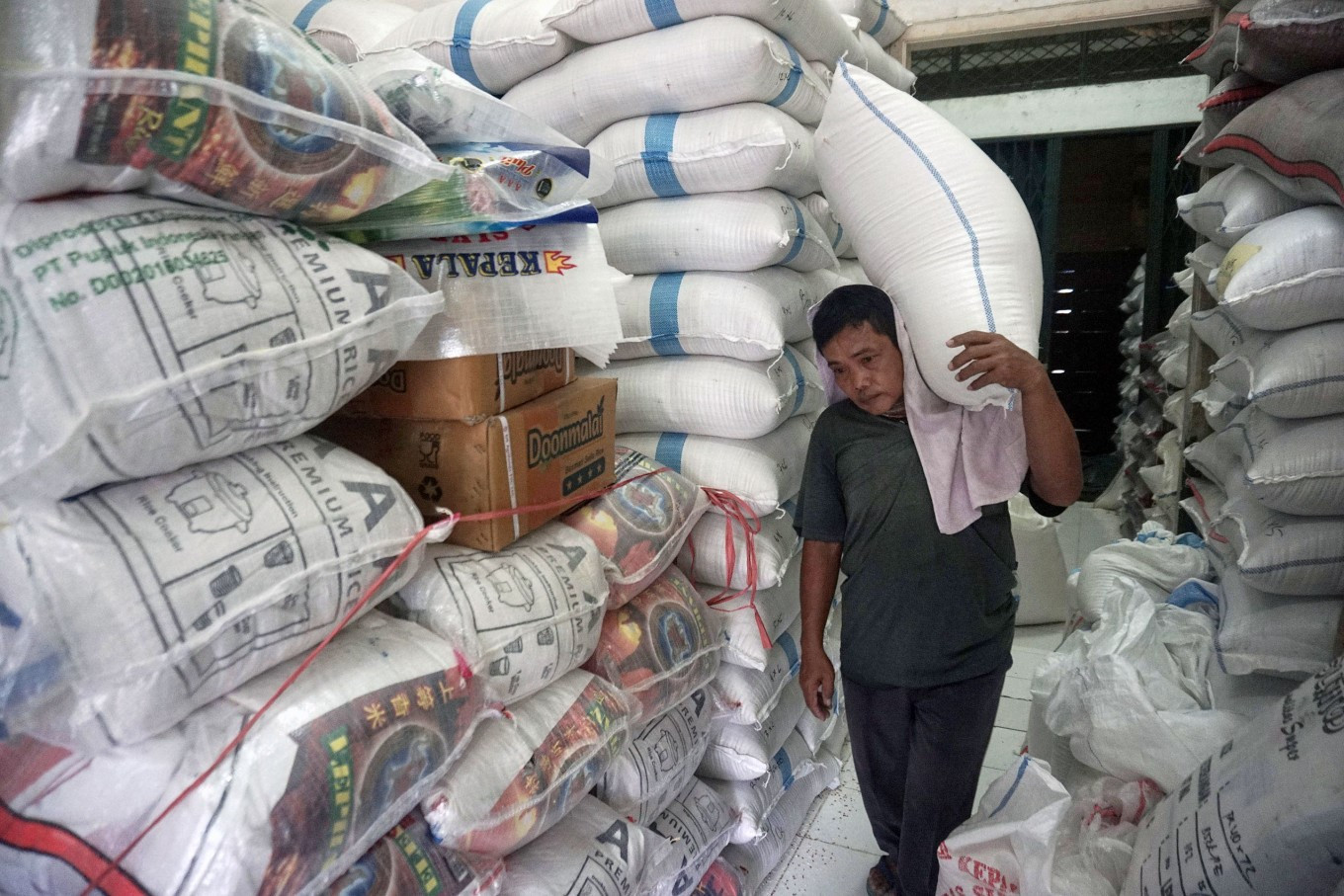Popular Reads
Top Results
Can't find what you're looking for?
View all search resultsPopular Reads
Top Results
Can't find what you're looking for?
View all search resultsTough call on rice
At times, rice import is necessary to avert calamities such as a food crisis, speculator's intervention, a severe price hike or inflation and thinning Government Rice Reserves (CBP).
Change text size
Gift Premium Articles
to Anyone
E
ach time the government rolls out a plan to import rice, the public reacts with resistance. Understandably, for many Indonesians, rice is considered more than just a staple food, but also a sort of political commodity.
Importing rice is deemed as taboo by some, although such a decision does not necessarily reflect the country's failure to achieve self-sufficiency. At times, rice import is necessary to avert calamities such as a food crisis, speculator’s intervention, a severe price hike or inflation and thinning Government Rice Reserves (CBP).
Regarding the issue, President Joko “Jokowi” Widodo highlighted during a recent cabinet meeting the urgent need to secure national rice stock for 2023 amid the risk of an imminent food crisis.
“We have to be aware of the food crisis risk since it may trigger social and political unrest. Therefore, anything regarding domestic rice reserves must be calculated carefully and precisely. Do not make a mistake,” Jokowi stated.
The bad news is that to date the State Logistics Agency (Bulog) only has 503,000 tonnes of rice in store, well below the level of 1.1 million to 1.5 million tonnes required to maintain sufficiency. It is estimated that Bulog has to distribute 200,000 tonnes this month, further depleting Bulog’s reserves.
The agency has set a target of securing 1.2 million tonnes by the year-end. The problem is to fill the gap with domestic production, which is in good condition, amidst challenges of surging grain prices.
The price of unhusked rice at local mills has now ranges from Rp 6,000 (39 US cents) to Rp 6,300 per kilogram and this impacts downstream rice prices, which are currently in the range of Rp 11,000 to Rp 12,000 per kg, far above the highest retail price (HET) for medium rice of Rp 9,450 to Rp10,250 per kg.
Consequently, the government has no choice but to give Bulog the green light to import 500,000 tonnes of rice. It will be Indonesia’s first import since Bulog entered the international rice market for a significant volume in 2018.
Let’s not debate over whether the decision is correct. Indonesia is indeed racing against time to secure its staple food for national security’s sake. Timing is crucial to hinder imported goods arriving at the time of Indonesia’s main harvest in early 2023.
The government's policy of revoking cheap rice and replacing it with Non-Cash Food Assistance (BPNT) as well as its foot-dragging revision of the government purchase price (HPP) policy have been the underlying issues of Bulog’s inability to maintain its rice procurement from the domestic market and stabilize prices.
At the end of the day, to make sure this rice import furor does not recur when the country is entering the critical political year in 2023, it would be appropriate for the government to consider that the procurement of rice for the BPNT program comes only from Bulog’s reserves.
If Bulog is given a chance to once again be the sole supplier of rice for the BPNT, it will be easier for the agency to stabilize rice prices and avoid import amid a local production surplus. In addition, it will ensure the efficient use of the state budget.











